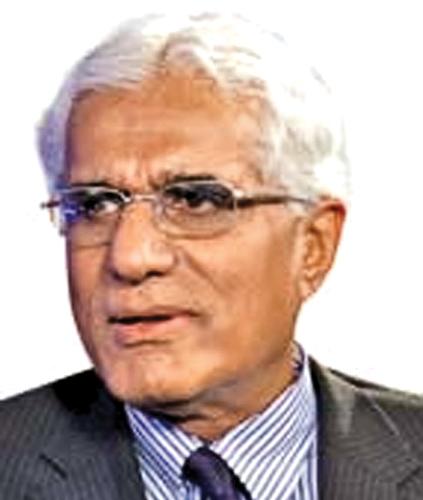
The Governor of the Central Bank of Sri Lanka, Dr. Indrajit Coomaraswamy says there is a very strong rationale for putting in place the proposed Indo-Sri Lanka Economic and Technology Cooperation Framework Agreement (ETCA) since such a rules-based framework is the real protection for small and vulnerable countries.
Addressing the second regional conference named ‘Trincomalee Consultations’ participated by countries in the Bay of Bengal last week, the governor pointed out that with the fast growth of the Indian economy increasing the asymmetries between economies of Sri Lanka and India, it is in the interest of a ‘smaller country’ like Sri Lanka to have a rules-based framework within which trade and investments takes place.
“The more rules-based frameworks you have to determine bilateral and international relations, the greater protection there is for relatively smaller countries.
If you don’t have those rules, given the enormous size of the Indian economy and their greater rate of growth, it will be a much untidy and more disruptive process if you don’t have a rules-based framework to govern bilateral relationships between the two countries,” the governor said.
He was speaking at the regional conference to deliberate on collaborative development of the Bay of Bengal in a secure environment jointly organized by the Pathfinder Foundation, in collaboration with Carnegie India and Vivekananda International Foundation, India. While acknowledging the genuine concerns when small countries negotiate with larger countries, given the asymmetries of the economies involved, the governor hence pointed out that the ETCA agreement could be used as a template for other countries in the Bay of Bengal region.
“One lesson is that agreement between a smaller country and a larger country must be based on the concept of reciprocity and special and preferential treatment.
In practice, what that means is that the smaller country will have longer negative lists in terms of trade-in goods and much shorter positive lists when it comes to trade-in services,” the governor highlighted at the conference, co-hosted by Carnegie India and held at Cinnamon Grand, Colombo.
Hence, the governor emphasized that a smaller country will have a much longer transition period in terms of liberalization agreed on the part of the trade deal while there are also safeguard provisions like the Anti Dumping Legislation, Sri Lanka has introduced.
“There’s a limit for the import surge. For example you can say if imports increase faster than a certain percentage per year, you can trigger off some tariffs which is again a protection a small country can have in terms of safeguards. One can also build in a Dispute Resolution Mechanism,” Dr. Coomaraswamy said.
The governor said that there are a number of trends which are playing themselves out increasing the potential for countries in the Bay of Bengal region to grasp opportunities which have recently emerged.
With the effects of the demonitisation wearing out and glitches with the General Services Tax (GST) being resolved, there is now the prospect of India, which is already the fastest growing largest economy in the world being able to sustain a 7% plus growth.
“If that happens, that should provide opportunities in the countries in the world and particularly if ‘Make in India’ strategy gains traction.
“That will then create the supply chains and cross border sharing arrangements which we have seen in the East being replicated in the Bay of Bengal region as well,” he said.
He pointed out that the way India’s political interests and global interests on one hand and economic development on the other are evolving, opportunities far outweigh any potential threats.
“Clearly those of us in the region should be sensitive to India’s geopolitical interests. We in Sri Lanka have learned the hard way that there are some red lines one needs to be conscious of. That’s the reality of geography we can’t get away from.
“Provided we can have good communication at all times and understand each other’s sensitivities, the political development and economic impetus in India does create opportunities for the rest of the countries in the Bay of Bengal,” the governor emphasized.
The event was represented by countries in the Bay of Bengal which included India, Bangladesh, Nepal, the Maldives and Sri Lanka. Japan and Norway also took part in the deliberations. Among those present were Pathfinder Founder Milinda Moragoda and PF Executive Director Luxman Siriwardena. Following the opening session chaired by PF Chairman Bernard Goonetilleke, papers were presented on three themes by Carnegie India Director Dr. C. Raja Mohan, Abu Saeed Khan (Bangladesh), Dr. Satoru Nagao (Japan), Admiral Dr. Jayanath Colombage, Prof. Rohan Samarajiva, Rohan Masakorala (Sri Lanka) and Bay of Bengal Initiative for Multi-sectoral Technical and Economic Cooperation (BIMSTEC) Secretary General Ambassador Sumith Nakandala.
